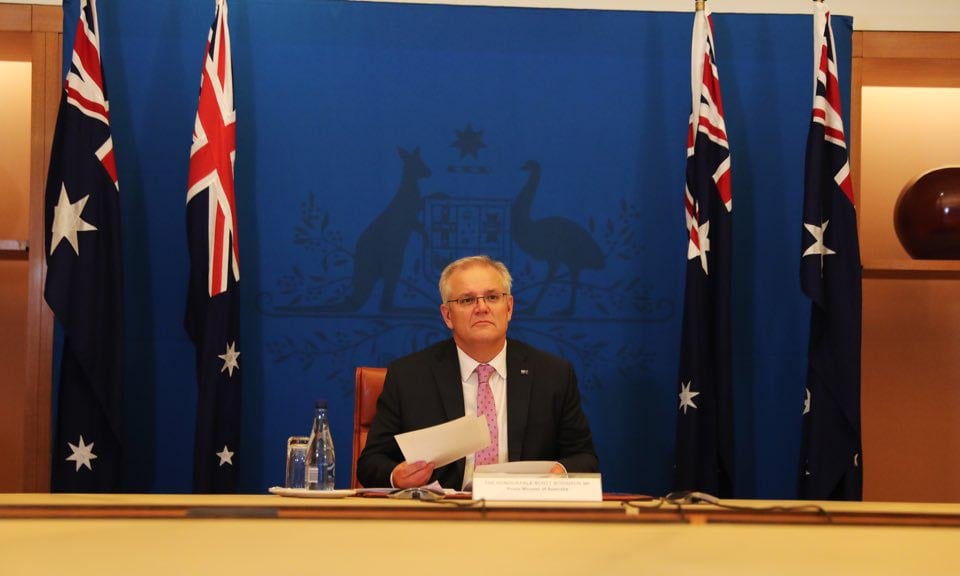
BOOT, enterprise bargaining and jobs growth all before Parliament within a month

Prime Minister Scott Morrison is warning that an upcoming set of industrial relations changes – including altering the Better Off Overall Test in an attempt to salvage enterprise bargaining – will please neither unions nor businesses.
Morrison implied that the changes could allow a more flexible interpretation of the BOOT, according to a report by The Australian Financial Review. That more flexible interpretation would hopefully help stop agreements from collapsing. The changes may also include a time limit on approving agreements.
In a Thursday speech to the Business Council of Australia, Morrison also said the government was considering abandoning its plan to count Kyoto carryover credits towards its 2030 emissions target. He said the government might be able to hit the target – which calls for an emissions reduction of 26% to 28% over 2005 levels – through technology, eliminating the need to use credits amassed before this year.
The industrial relations changes would be part of a set of IR reforms introduced to Parliament before Christmas, Morrison said in a speech to the Business Council of Australia. Morrison said the changes would be pragmatic and realistic rather than ideological.
“I don’t expect our reforms will elicit delirious applause,” Morrison said. “There won’t be sweeping praise from the union movement, and businesses won’t see their version of an industrial utopia either. But it will be a genuine attempt at fixing problems in a way that provides shared benefits.”
Morrison said the reforms would be designed to boost jobs growth as Australia emerged from recession.
In July, Morrison nominated five areas of industrial relations he said needed reforms and established negotiations between business groups, unions and the government.
On the five key reform areas nominated by the government earlier this year, the Australian Industry Group called for the government to:
The Australian Council of Trade Unions suggested:
One of the key areas was the enterprise bargaining system, which all sides agreed was in need of repair.
The main issue was that the BOOT was too rigid because it required every worker to be better off than the award. During the discussions, some called for bringing back the no-disadvantage test or having no test at all. Others called for giving the industrial umpire greater discretion in interpreting the BOOT, which can currently shipwreck an entire agreement should one worker be worse off, according to AFR.
Morrison indicated that the BOOT would remain in place but would be less stringent. Approving an agreement should “focus on substance rather than technicalities,” he said. He also hinted that a time limit for approving agreements could be imposed.
“Agreements should be assessed on actual foreseeable circumstances, not far-fetched hypotheticals, and the Fair Work Commission’s assessment of them should take place quickly within set time frames where there is agreement from the actual employees and employers involved,” Morrison said. “Key protections like the Better Off Overall Test will continue to be an important part of the framework. However, our goal is to ensure it will be applied in a practical and sensible way, so that the approval process does not discourage bargaining, which is a problem under the current approach.”
The five areas that will be covered in the omnibus bill are award simplification, the enterprise agreement system, casuals and fixed-term employees, compliance and enforcement to ensure employees are paid properly, and the establishment of greenfields agreements
The last area involves setting up lifetime workplace agreements for greenfields projects including mines, gas fields and major infrastructure developments, so they don’t have to be renegotiated mid-construction with the threat of strike action, according to AFR.